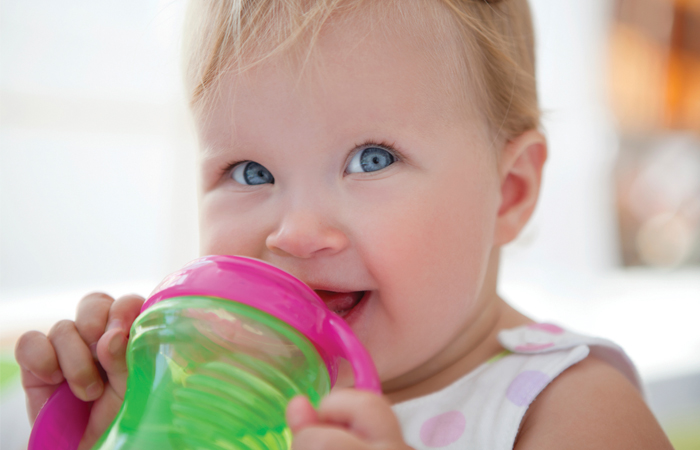Ask the experts: 6-12 months
In 6-12 months
Follow this topic
Bookmark
Record learning outcomes
At six months old, babies' diets change to become less reliant on milk. So how do the experts advise pharmacy teams help parents at this transitional phase?

Q What is the best way to persuade a baby to start drinking from a cup?
A Tanya Thomas, BSc (Hons) RD freelance paediatric dietitian, says: €Introduce a cup from around six months of age onwards. Encourage an open cup or a free-flow cup without a valve so that baby learns to sip rather than suck €“ this is better for their teeth. It is sometimes a good idea to try using the cup in the day rather than the night time at first. It may take several attempts to introduce a cup. Parents and carers need to persevere and may need support. They should also be prepared for some mess!€
Q How do follow-on milks differ from cows' milk?
A €Follow-on milks can be given from six months,€ says Boots UK nutritionist, Vicky Pennington. €They contain higher levels of key nutrients such as vitamin D and iron than cows' milk. In comparison, babies cannot be given cows' milk until they are at least 12 months old because it's too low in iron and too high in salt. Follow-on milks are milk drinks and are not a substitute for breast milk for babies under six months of age.€
Q If a nine-month-old baby is eating three meals a day, how much milk should he be drinking?
A Dr Emma Derbyshire, independent nutrition consultant and founder of Nutritional Insight Ltd, says: €Three bottles of about 150-200ml each time, in the morning, before or after their nap, and before bed.€
Registered nutritionist Charlotte Stirling-Reed BSc (Hons) MSc, adds: €This will vary from baby to baby. Once a baby is established with solid foods and feeding well, parents will find that their baby doesn't need so much milk and will normally start taking less milk at each feed or even drop a milk feed altogether. It's important that parents look for signs that their baby has had enough milk during a feed such as turning their head away, clamping their mouth shut or stopping before the end of a feed. Responsive feeding is important for parents to try and recognise their baby's signs of fullness and to ensure they don't overfeed. The best way to check that a baby is getting enough in the way of energy is to get them weighed fairly regularly with the health visitors.€
Read all the articles about infant feeding from six to 12 months? Now test your knowledge on this section and add it to your learning log.
